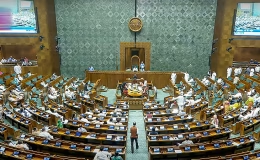To Honourable G20 Leaders,
Re: China’s Colonial Boarding Schools in Tibet
We, a coalition of over 143 Tibet-related rights groups, are writing to you ahead of the G20 New Delhi Leader’s Summit on 9-10 September 2023, urging you to take firm joint action concerning the Chinese government’s relentless colonisation of Tibet and attempts to eradicate Tibetans’ distinct identity.
Occupied for over seven decades, China’s rule in Tibet is one of the last remnants of 20th-century colonialism. This is epitomised by a vast and alarming system of colonial boarding schools and preschools housing close to 1 million Tibetan children. This equates to three out of every four Tibetan students ages 6-18 being separated from their parents and communities and living under state control. It is estimated at least 100-150K four-and five-year-olds in rural areas are being forced to attend boarding preschools – where they must sleep – at least 5 nights a week – away from the care and protection of their parents.
On 6 February 2023, a group of UN human rights experts released a statement expressing alarm concerning “the residential school system for Tibetan children [that] appears to act as a mandatory large-scale programme intended to assimilate Tibetans into majority Han culture, contrary to international human rights standards.”
Further concern was raised by The UN Committee on Economic, Social and Cultural Rights (CESCR) in Geneva expert committee members reiterated strong concern about the erosion of Tibetan language “in the push for a unified curriculum and the national common language policy”. This policy has resulted in Tibetan being replaced by Chinese as the medium of instruction in schools throughout Tibet, including in kindergartens where “Tibetan children as young as four to six are being sent to boarding schools where they are completely deprived of access to their language and their culture.”
By intentionally uprooting Tibetan children from their families and culture, making them live in state-run boarding schools, the Chinese authorities are using one of the most heinous tools of colonisation to attack Tibetan identity. While China claims to be educating Tibetan children, the world knows what it looks like when children are pushed into residential schools run by a state that wants to wipe out their culture, including high levels of alienation, loss of identity, and intergenerational trauma.
Given the gravity and urgency of this situation, we call on G20 leaders to address this attack on Tibetan identity with Chinese leaders in both multilateral and bilateral meetings. We further call on you to release a robust joint statement of concern that:
- Urges the Chinese government to halt the residential boarding school and preschool system in Tibet and to uphold the current constitutional and statutory protections for Tibetan language promotion and preservation.
- Denounces China’s attempts to eradicate Tibetans’ distinct identity, including their language, culture, history, and way of life.
Together your governments are uniquely positioned to exercise strong and direct influence on China’s leadership. By acting in unison, you will not only increase your influence over Beijing, but this common approach will provide participating governments with a greater measure of protection from China’s efforts to impose its authoritarian influence on our own democracies.
We look forward to your urgent response to this request.
Signed,
Internationatonal Tibet Network
On behalf of 2,500+ supporters and the following 143 organisations:
| Argentina CADALAustralia Australia Tibet Council Sakya Trinley Ling Tibet Action Group of Western Australia Tibet Support Group Adelaide Tibetan Community of Victoria Tibetan Community, Queensland Brazil Canada European Union
France Germany India |
India [Cont.]
Tibet Friendship and Cooperation Society- Maharashtra Tibet Friendship Society – Bihar Tibet Friendship Society – Dashthrathpuni Tibet Friendship Society – Delhi Tibet Friendship Society – Muzaffarpur Tibet LivesIndonesia Roof of the World Foundation Italy Japan Mexico South Africa United Kingdom United States
Rest of the World |






Leave a Comment